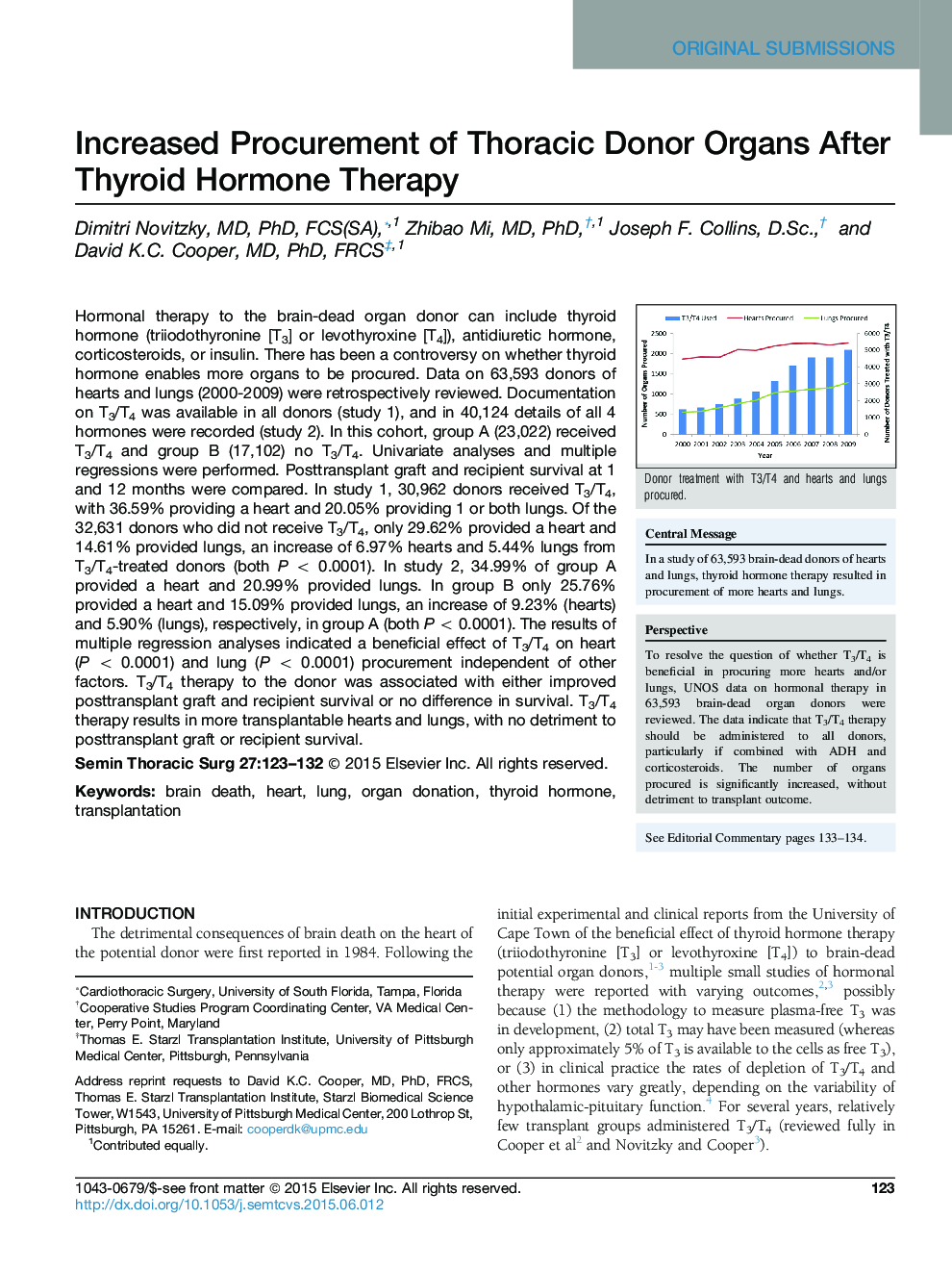| Article ID | Journal | Published Year | Pages | File Type |
|---|---|---|---|---|
| 6000206 | Seminars in Thoracic and Cardiovascular Surgery | 2015 | 10 Pages |
Hormonal therapy to the brain-dead organ donor can include thyroid hormone (triiodothyronine [T3] or levothyroxine [T4]), antidiuretic hormone, corticosteroids, or insulin. There has been a controversy on whether thyroid hormone enables more organs to be procured. Data on 63,593 donors of hearts and lungs (2000-2009) were retrospectively reviewed. Documentation on T3/T4 was available in all donors (study 1), and in 40,124 details of all 4 hormones were recorded (study 2). In this cohort, group A (23,022) received T3/T4 and group B (17,102) no T3/T4. Univariate analyses and multiple regressions were performed. Posttransplant graft and recipient survival at 1 and 12 months were compared. In study 1, 30,962 donors received T3/T4, with 36.59% providing a heart and 20.05% providing 1 or both lungs. Of the 32,631 donors who did not receive T3/T4, only 29.62% provided a heart and 14.61% provided lungs, an increase of 6.97% hearts and 5.44% lungs from T3/T4-treated donors (both P < 0.0001). In study 2, 34.99% of group A provided a heart and 20.99% provided lungs. In group B only 25.76% provided a heart and 15.09% provided lungs, an increase of 9.23% (hearts) and 5.90% (lungs), respectively, in group A (both P < 0.0001). The results of multiple regression analyses indicated a beneficial effect of T3/T4 on heart (P < 0.0001) and lung (P < 0.0001) procurement independent of other factors. T3/T4 therapy to the donor was associated with either improved posttransplant graft and recipient survival or no difference in survival. T3/T4 therapy results in more transplantable hearts and lungs, with no detriment to posttransplant graft or recipient survival.
